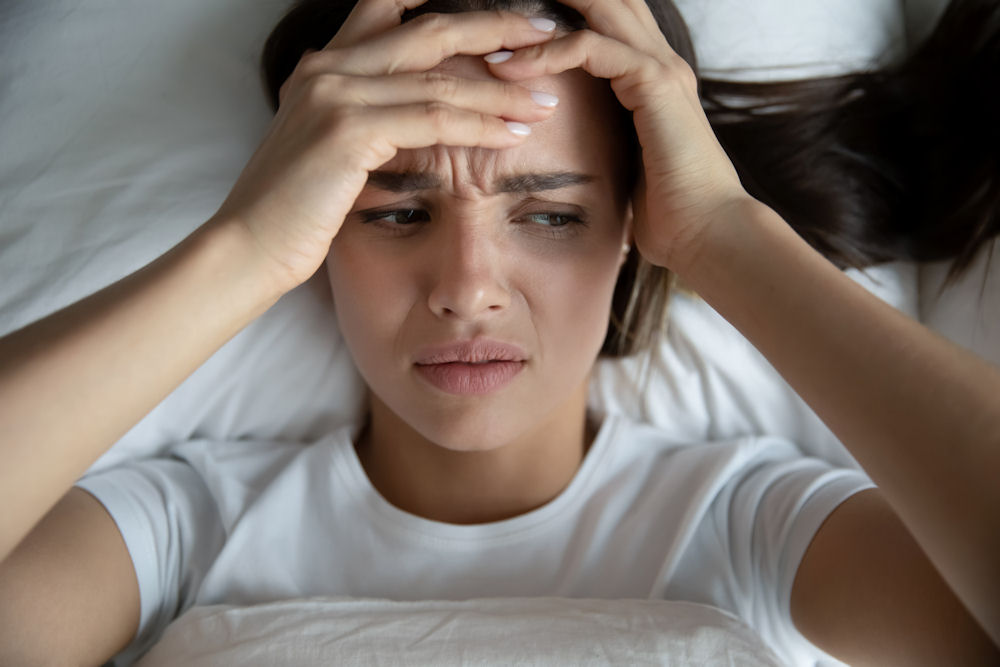Are you aware of how important sleep is for your overall health? It’s not just about feeling rested—sleep plays a crucial role in maintaining both your physical and mental well-being. However, for individuals facing addiction, getting a good night’s sleep can be a significant challenge. Sleep disturbances are closely linked to addiction in more ways than one. It works both ways: sleep issues can contribute to addiction, while substance use can also cause or worsen sleep disorders. In this blog, we’ll explore the connection between sleep and addiction recovery and their impact on your health.
Exploring Different Sleep Disorders and Their Connection to Addiction
Common sleep disorders such as insomnia, sleep apnea, and narcolepsy are often closely linked to addiction. This connection creates a harmful cycle, where sleep problems can worsen addiction, and substance use can aggravate sleep disorders, making both issues more challenging to manage. Addiction therapy programs focus on breaking this cycle by treating both sleep disorders and addiction simultaneously, improving recovery outcomes.
Insomnia: A Common Sleep Disorder Leading to Addiction
 Insomnia, characterized by difficulty falling or staying asleep, affects millions worldwide. For individuals suffering from insomnia, the lack of restorative sleep can result in fatigue, irritability, and decreased cognitive functioning.
Insomnia, characterized by difficulty falling or staying asleep, affects millions worldwide. For individuals suffering from insomnia, the lack of restorative sleep can result in fatigue, irritability, and decreased cognitive functioning.
Many individuals with insomnia may resort to using alcohol, sedatives, or other substances to manage their sleep issues. While these substances may offer temporary relief, they often exacerbate the problem over time. For example, alcohol, initially known for its soothing effects, disrupts the sleep cycle later in the night, leading to more fragmented and less restorative sleep. This dependence on substances to manage insomnia can spiral into addiction.
Sleep Apnea: Its Connection to Substance Abuse
Sleep apnea, a condition where breathing repeatedly stops and starts during sleep, is also linked to addiction. Individuals with sleep apnea often struggle with excessive daytime sleepiness, lack of concentration, and irritability due to poor-quality sleep.
Interestingly, the connection between sleep apnea and substance abuse is more prominent than one might think. For instance, individuals with untreated sleep apnea may turn to stimulants to stay awake during the day, or they might use alcohol or sedatives to help them fall asleep at night. However, these substances can worsen the symptoms of sleep apnea, leading to a dangerous cycle of substance use and sleep disturbances.
Narcolepsy and its Relationship with Addiction
Narcolepsy is a neurological disorder characterized by excessive daytime sleepiness and sudden sleep attacks. People with narcolepsy often experience disruptions in their sleep-wake cycles, which can interfere with daily activities, work, and relationships.
The constant struggle to manage the symptoms of narcolepsy can drive individuals to misuse medications, such as stimulants, to stay awake during the day or depressants to help them sleep at night. Over time, this reliance on substances can develop into addiction, further complicating the individual’s ability to manage their condition effectively.
Alcoholism and Sleep Disorders: How They Feed Off Each Other
Alcohol use disorder and sleep disorders often go hand-in-hand, creating a vicious cycle that’s hard to break. Drinking too much alcohol interferes with the body’s natural sleep patterns, making it difficult to fall asleep or stay asleep. While alcohol might initially make you feel drowsy, it disrupts the deeper stages of sleep, like REM, which is essential for memory and learning. As a result, you wake up feeling tired and unrefreshed, leading to more alcohol consumption in an attempt to cope with the fatigue and stress, further feeding the problem.
On the flip side, sleep disorders can drive someone to drink more. When you’re battling insomnia or waking up throughout the night, alcohol might seem like a quick fix due to its soothing effects. However, over time, relying on alcohol for sleep only worsens the issue, creating a dependency and further disturbing sleep cycles. Research even shows that chronic heavy drinking weakens the brain’s ability to regulate circadian rhythms, making it harder to maintain healthy sleeping patterns. This creates a loop where alcohol and poor sleep continue to fuel each other, making recovery from either issue increasingly challenging.
Substance Abuse and Sleep Disorders: A Vicious Cycle
Substance abuse and sleep disorders feed off each other in a detrimental cycle. Many individuals who abuse substances like stimulants, sedatives, or opioids experience significant disruptions in their sleep patterns.
For example, stimulant drugs like cocaine and methamphetamine keep users awake for extended periods, often leading to sleep deprivation. On the flip side, depressants such as opioids or benzodiazepines may induce sleep initially but frequently result in poor-quality rest and increased tolerance over time.
Sleep deprivation from substance abuse can also impair judgment, increase stress, and exacerbate cravings for the substance, further entrenching the addiction. In this vicious cycle, sleep disturbances both fuel and are fueled by substance use.
Gambling Addiction and Sleep Disorders: A Hidden Connection
Gambling addiction is another often overlooked contributor to sleep disturbances. Individuals with a gambling addiction may stay awake for long hours, either physically gambling or ruminating about their losses, which disrupts their sleep patterns.
Lack of sleep leads to heightened stress, anxiety, and poor decision-making—factors that can drive gambling behavior further. Moreover, the release of dopamine during gambling creates a heightened sense of arousal, which interferes with the body’s natural sleep-wake cycle. Over time, gambling addiction can contribute to chronic sleep issues, exacerbating both the addiction and its negative consequences on mental health.
Effective Treatments for Sleep Disorders and Addiction
Treating sleep and addiction recovery issues simultaneously is critical for long-term success. A comprehensive approach that addresses both challenges can significantly improve outcomes for individuals in recovery. Here are some effective treatments:
Cognitive behavioral therapy for Insomnia (CBT-I), is one of the most effective treatments for sleep disorders. It helps individuals identify and change negative thoughts and behaviors that contribute to sleep problems and substance use.
For individuals struggling with addiction, medication-assisted treatment can be helpful. Medications such as methadone, buprenorphine, or naltrexone can reduce cravings and withdrawal symptoms, helping to restore a more stable sleep cycle.
Practices like mindfulness meditation, progressive muscle relaxation, yoga, and deep breathing exercises can promote relaxation and improve sleep quality, making it easier to break the cycle of addiction and sleep disturbances.
Establishing good sleep hygiene can also play a crucial role. This includes maintaining a consistent sleep schedule, creating a comfortable sleep environment, limiting screen time before bed, and avoiding substances like caffeine or alcohol close to bedtime.
Breaking the Cycle: How to Overcome Sleep Disorders and Addiction
Breaking the cycle of sleep disorders and addiction requires a holistic approach that addresses both the physical and psychological aspects of the conditions.
The first step in overcoming sleep disorders and addiction is seeking help from professionals. Addiction specialists, sleep doctors, and therapists can work together to create a tailored treatment plan that addresses both issues simultaneously.
Support from family, friends, and peer groups is invaluable during recovery. Joining support groups, such as Alcoholics Anonymous (AA) or Gamblers Anonymous (GA), can offer a sense of community and shared experience.
Having a structured daily routine can provide a sense of stability, which is essential for both addiction recovery and improving sleep. Setting regular wake and sleep times, incorporating physical activity, and engaging in relaxing pre-sleep rituals can improve sleep quality and reduce cravings.
It’s essential to avoid self-medicating with substances to manage sleep disorders. Instead, focus on healthier alternatives, such as herbal teas, relaxation techniques, or prescribed medications, to improve sleep without risking addiction.

Take Control of Your Sleep and Break Free from Addiction Today!
Are sleep and addiction recovery challenges holding you back from living your best life? These issues often feed into each other, creating a cycle that feels hard to escape. But with the right treatment and support, breaking free is possible! Understanding how sleep and addiction recovery are connected is the first step towards improving your sleep, reducing dependence on substances, and reclaiming your health.
Northern Illinois Recovery can help you navigate this journey with personalized care and expert guidance. Don’t wait—take the steps toward a healthier, more fulfilling life. Contact us today to start your journey to recovery!




